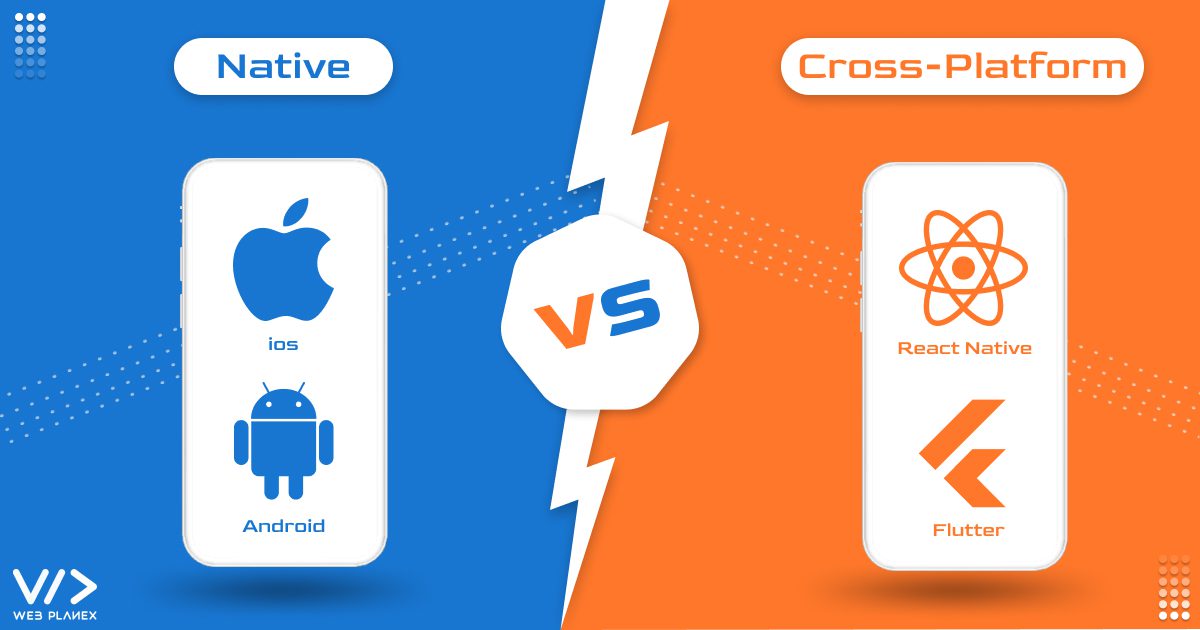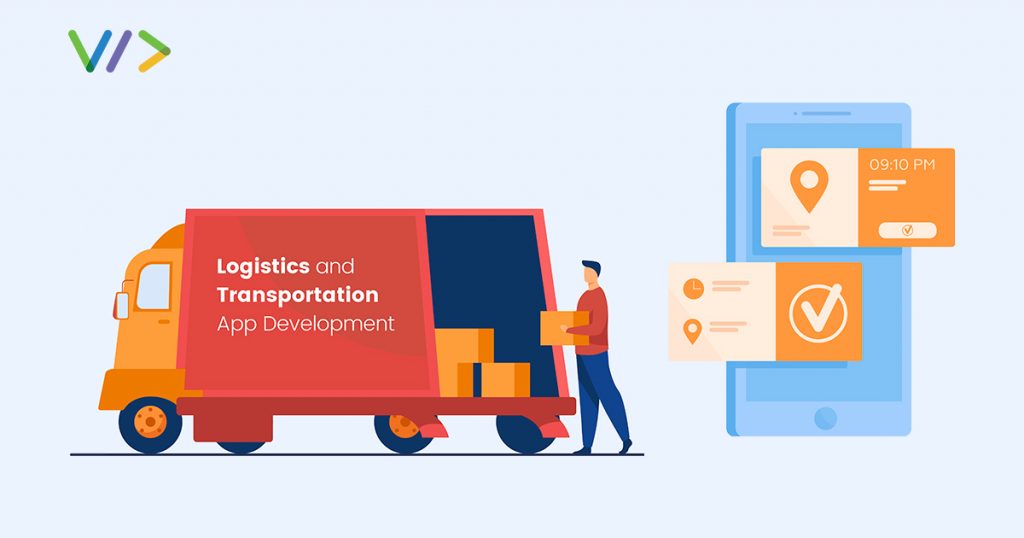
Mobile applications have had a real positive impact on businesses worldwide, as they help them expand exponentially. The world’s expansion of mobile app development has also seen the growth of various mobile app development platforms. There are some of the famous app development frameworks are Native app development and cross-platform app development. Selecting between native or cross-platform development is one of the best important decisions in any mobile app project.
Users access these mobile apps through their app store, which may be the Google play store or Apple’s App store. They are made by developers with the smartphone operating system in mind. Android and iOS are the two most popular operating systems that is being targeted. Your mobile app development strategy will be affected by whether you are targeting iOS or Android.
Several questions come to mind about which platform is the best, native or cross-platform. They’re here; we will also discuss cross-platform vs native app development. When selecting between native and cross-platform app development, you must consider both meanings, advantages, and disadvantages. In this blog, we’ll explore both options’ meanings, advantages, and disadvantages of each. So have a deep dive into it.
Native app development is about building apps with a platform’s native language and using APIs/frameworks designed explicitly for accessing features. A native iOS app would never work on Android and vice versa. Because different platforms require various development technologies and programming languages.
For example, developers would use AppCode Xcode and Atom to build iOS and Android studio to create an Android app. Android applications will be built separately as the first one requires Java or Kotlin, and other development project needs Swift and Objective-C. However, if you want your app to be available on various platforms and devices, you need your developers to build different versions of it. Though more expensive and time-consuming, this approach gives a top position on the platform’s app store and support features on your mobile.
Webplanex has developed the best native mobile app for the Shopify store located at: https://apps.shopify.com/mobidesign-android-app-builder
Here you can find native app builder privacy and policy at: https://www.webplanex.com/cashback-rewards-program-privacy-policy/


Cross-platform development is the process of building an application, typically a mobile app which can be deployed across various platforms based on a single codebase. In short, cross-platform mobile applications from a single codebase. The main advantage of cross-platform is code reusability, thereby simplifying the whole development process.
Javascript, C# and Dart are common programming languages used highly for cross-platform app development. Developers used technologies including React Native, Flutter, and Xamarin.


- High security : – Native apps are the best to protect against security violations over cross-platform apps. Native apps are programmed using high core language of the platform which makes more secure and reliable. Various features, such as proactive security upgrades and multi-factor authentication.
- Best offline performance : – Native app development built apps with high performance in terms of speed, responsiveness and operational efficiency. These platforms specifically programmed using core programming language and APIs.
- Great UX/UI: – The most significant and most popular apps on the digital marketplace have become successful due to their UX design. Native apps support complex layouts that permit full customization of interface elements giving more possibilities for complex animation. Developed using native software development kits destined for a specific operating system, native mobile apps deliver the best flow to the users.
Read more: – Shopify vs. Shopify plus latest update for Shopify plus
- Reusable code : – One of the advantages of cross-platform development is the reuse of code. Developers can reuse and repurpose 80% of existing code to adapt to various devices. However, this development is more straightforward and faster than native app development.
- Less costly : – One of the best advantages of cross-platform development is that they are much more cost-effective to develop. You need to pay nearly as much as you would for native app development. It only required one development team with specific skills rather than multiple teams with varying skill sets.
- Time-saving : – Another advantage of cross-platform development apps is that they are designed to run various platforms using the same code. The developer will be able to deliver much faster than with a native app. Time is incredibly valuable to many businesses that need to stay one step ahead of their customers. The cross-platform app lets you quickly respond to customers’ needs and wants, delivering apps tailored to them before they lose interest.
- Broad audience reach : – Cross-platform app development is one way to go if you want to increase your user base. However, it allows you to design an application which compatible with iOS and Android. To attract more people’s attention, publicize your product in many marketplaces like App Store and Google Play store.
- Increase in productivity : – One of the best advantages of developing for many platforms is the reduction in expense associated with development. Many businesses, especially startups, are hesitant to invest significantly in generating mobile applications. Developing a mobile application with iOS and Android using a single codebase is a primary benefit of cross-platform mobile app development.
The availability of different platforms also calls for apps which handle operating and various systems. There are a lot of companies that take advantage of cross-platform alone. Some examples of top-performing cross-platform apps have also become indispensable to everyday life.
- Mozilla Firefox
- Google Chrome
- Adobe Reader
- Open Office
There’s no surprise that many mobile applications on the market are native ones. All are tuned to perform at maximum efficiency for their respective platforms. There are many native app development examples available let’s check.
- Waze
- Pokemon Go
- Spotify
Conclusion
Do you always think that the right technology for your app bothers you? No worries you are in the right place to select. You get a proper experienced team for your web developers at Webplanex. Both native and cross-platform app development has perks of their own. From this, you get a clear idea about cross-platform and native-platform app development. However, the choice depends upon you either depends on the project requirements or the skills of the developers involved. If still have doubts about choosing native or cross-platform development? Get professional advice from our team.




